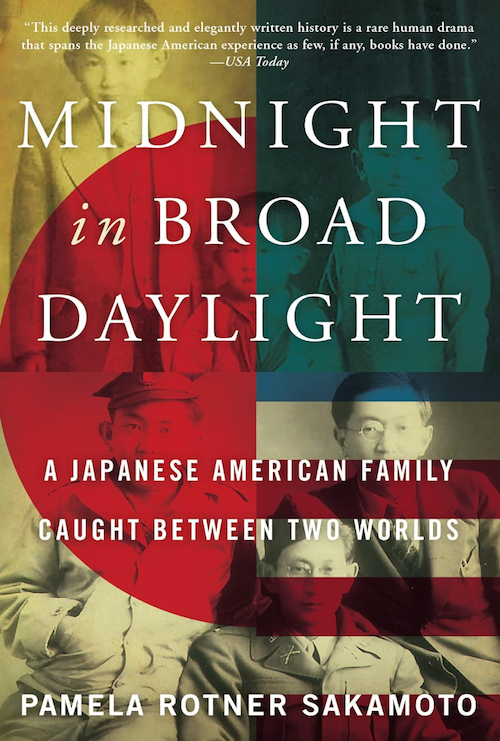What a story about one Japanese-American family before and during WWII can teach us about resilience in the face of discrimination and hardship.
In Midnight in Broad Daylight, Pamela Rotner Sakamoto paints a powerful portrait of the Fukuhara family, illustrating their resilience in the face of unimaginable hardship and discrimination during World War II. Their story serves as a poignant reminder of the strength found in family bonds and the enduring spirit of those who face adversity.
From the onset I was captivated by Sakamoto's prose, which is engaging and evocative, making history accessible and relatable. She skillfully weaves together personal narratives with broader historical events, allowing readers to understand the impact of emigrating to American and then the onset of World War II on Japanese-American families.
The history of anti-Japanese immigration laws in the years before the war, the internment camps, the heroic actions of those interned joining the war effort and helping to defeat the imperial army, it’s all there.
Even more poignant is the fact that the Fukuhara family is originally from Hiroshima, so when the atomic bomb is dropped they are directly impacted by that calamity as well.
I’ve read that people who live in such difficult circumstances often say that they had no choice but to do what they did, but I still find it inspirational and remarkable that they find the strength to keep on going.
One theme that does come back again and again, and that I see in my Japanese spouse as well, is that “it’s all for the family”. Dealing with such extreme hardship, bullying, incarceration, starvation, losing loved ones; even after all that they still say it was worth it to have the family survive. I guess it’s a reflection of the universal truth that love and commitment to family can provide the strength needed to endure even the darkest times.
What also heartened me is that in spite of the anti-Japanese rhetoric some American friends stood by the Fukuhara’s side, and the same goes for the Japanese families supporting the Japanese-American family members who happened to be in Japan when the war broke out.
This story serves as a powerful reminder to appreciate the connections we have and recognize the shared humanity that unites us, regardless of our backgrounds. It inspires me to reflect on my own experiences and the importance of standing by loved ones in tough times. In a world still grappling with identity and belonging, the lessons from the Fukuhara family encourage us all to be resilient and compassionate.
What stories have inspired you lately, and how have they shaped your perspective on resilience and connection?


